There is a proposal for ex-premier Dr Mahathir Mohamad to be Pakatan Harapan’s prime minister candidate to wrestle back the government following the infamous “Sheraton Move”.
There are also calls for Prime Minister Muhyiddin Yassin to be allowed to hold on to his usurper’s crown. This is to allow him to deal with the Covid-19 pandemic and economic crisis.
In lobbying for numbers, political parties have forgotten the people. The people, however, will not forget. They will also not forgive. Thus, a modification of Bill Clinton’s reminder to his campaign workers is appropriate: “It’s the lack of legitimacy, stupid.”
The most important factor is not who leads the government but who the governed wants to follow. Who has the consent of the governed?
Consent of the governed means the legitimate and moral right to use state power, which is only justified and lawful when consented by the people. Those who lack legitimacy do not have the right to rule.
Muhyiddin being appointed prime minister by the Yang di-Pertuan Agong has de facto authority. De facto authority means the capacity to maintain public order and compel the obedience of the people by issuing commands backed by sanctions.
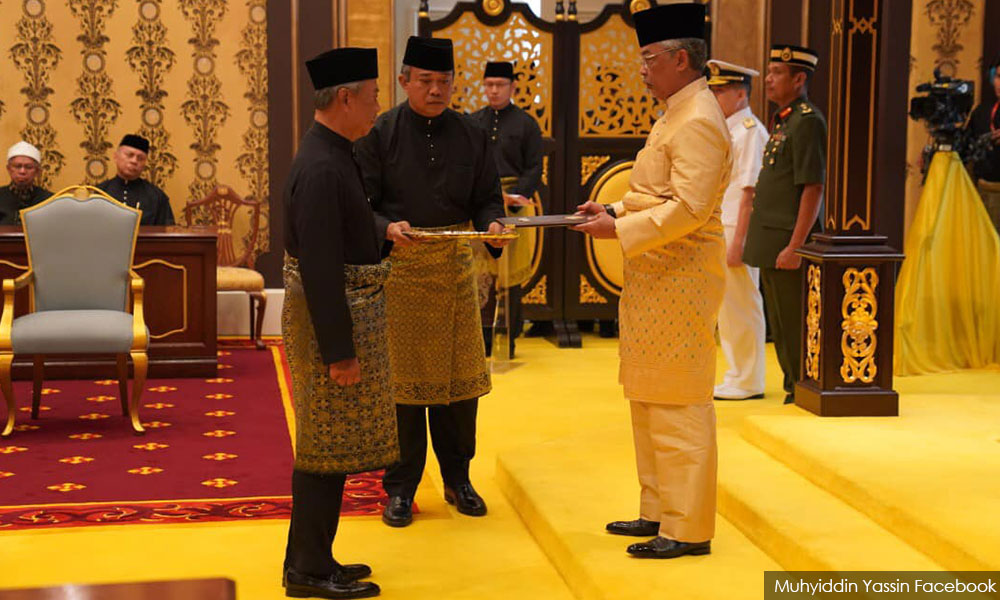
The individual who fails to obey will be punished by a fine, go to jail, or worse, suffer physical harm by being caned or even death by hanging. De facto authority is the power of securing obedience over individuals seeking to avoid punishment.
Legitimate political authority is the right to rule conferred by each citizen to the authorities. The individual citizen voluntarily accepts it as his duty to obey the authorities for moral reasons. It involves the mutual recognition and affirmation of the moral status of each person in society.
To the extent that a society is ruled by an authority that has the right to rule, it is an ideal moral community. Societies that have other types of authorities are lesser forms of a morally-ideal community.
Political legitimacy is a basic condition for governing, without which a government will suffer legislative deadlock and collapse. John Locke said that political legitimacy derives from popular explicit and implicit consent of the governed. Jean Jacques Rousseau said an attempt to rule without legitimacy is an attempt to exercise coercive power, not authority.
Even the most powerful and the most despotic governments cannot hold a society together by sheer force. Therefore, most rulers prefer to be esteemed rather than feared.
A legitimate state is less dominating over its citizens as the legitimate use of power minimises the negative consequences of power. Governments, therefore, are produced by the consent of the governed.
Legitimacy is very much a matter of the individual’s political outlook and lies “in the eyes of the beholder”. It is important to note that no state ever enjoys the complete support of the entire population.
Even in the most legitimate state, there will be those who oppose the regime. There are always different levels of support.
Legitimacy is explained as a reservoir of support. So long as the different levels of support like water in a reservoir are at a given level, political stability is maintained. If it falls below the required level, political legitimacy for the regime is endangered.
Muhyiddin has forsaken his reservoir of support
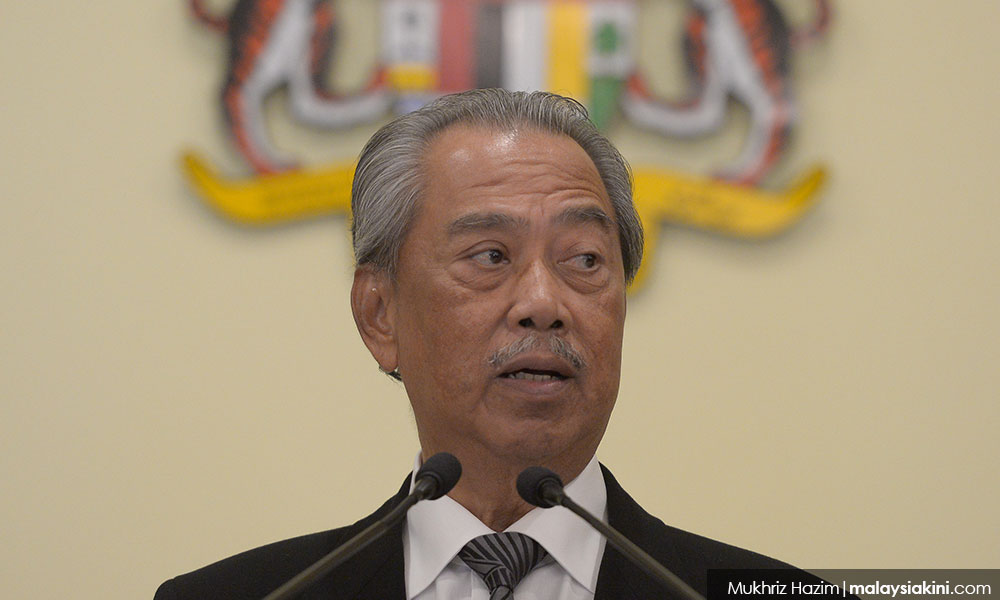
Muhyiddin faces difficulties with four essential elements required for legitimacy – trust, fairness, values, and democracy.
Trust: It is not easy to identify Muhyiddin’s reservoirs of support after he pulled Bersatu out of Harapan. Besides betraying the trust of his coalition partners, he has also forsaken the reservoir of Harapan supporters.
In the 14th General Election (GE14), this was 48 percent of the popular vote. He only has seven out of the original 13 Bersatu MPs (Tanjung Piai was lost in a by-election, and the remaining five are aligned to Mahathir). Muhyiddin has only Bersatu’s 5.95 percent of the popular vote to call his own.
Unlike business where you can use other people’s money, in politics you cannot rely on other peoples’ reservoir of support.
Umno’s 20.9 percent of the popular vote belongs to “Bossku”. This is on loan. It is not unreasonable to infer come July 28, if former prime minister Najib Abdul Razak is convicted in the SRC case, this support is no more. If acquitted, Najib will want this support to reclaim the prime minister’s post.
PAS’ 16.82 percent of the popular vote is dedicated to the service of God with PAS president Abdul Hadi Awang charged with the temporal duty to convert Malaysia into a theocratic fundamentalist Islamic state. Muhyiddin is hard to put to claim he has the majority consent of the governed.
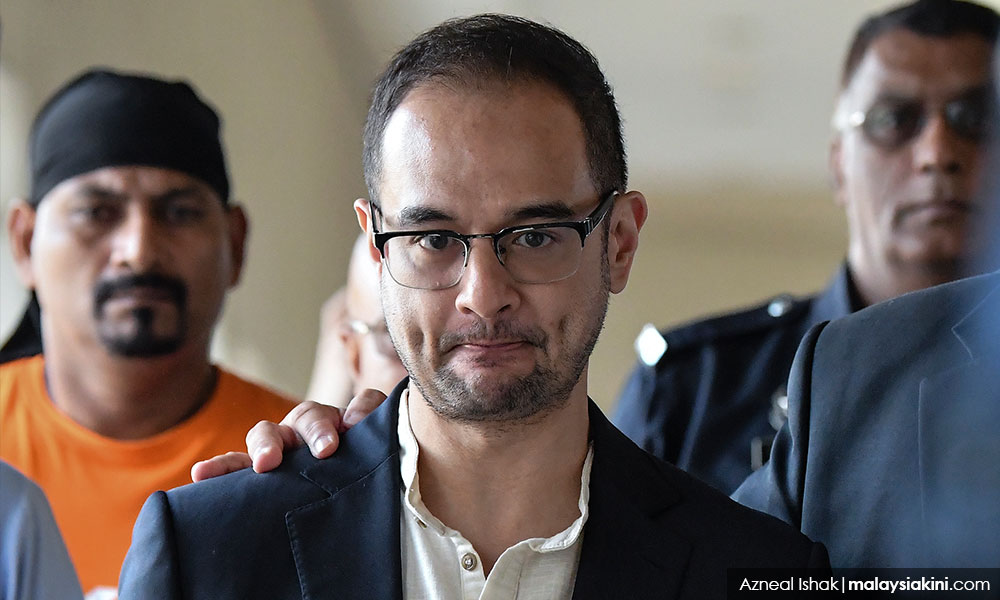
Fairness: Fairness requires the rule of law to be applied predictably and consistently. The discharge of Riza Aziz (photo) and acquittal of former Sabah chief minister Musa Aman raises questions on the rule of law under the Muhyiddin administration.
Values: Muhyiddin used state resources to entice MPs by offering minister posts, government-linked company positions and material rewards in return for political support.
His political survival is dependent on patronage. It appears the evils of patronage, rent-seeking, and elite capture of the government will return with a vengeance. This undermines the legitimacy of his administration.
Democracy: The avowed intention of Perikatan Nasional (PN) is the establishment of a super coalition of Malay nationalistic parties. We have not in 60 years of BN rule attained an acceptable level of social cohesion much less unity in our multiracial country.
Now, PN has not even bothered to continue the pretense of the BN consociationalism in favour of an open unapologetic Malay supremacy ideology. This is not necessarily a healthy development.
The dangers of ethnonationalism and the divisiveness of racism, fears, and resentment generated by their effect on ethnic minorities are tragically seen in the Black Lives Matter protests after the death of George Floyd, Brexit, and increased hate crimes. Social inclusiveness is under challenge.
Muhyiddin’s postponement of parliament sittings as well as failure to table essential post-Covid 19 laws, financial stimulus packages, and expenditure for parliament approval stems from concerns over the support for him.
Like Macbeth after killing King Duncan to seize the Scottish throne, suspicion always haunts a guilty mind. He may be more worried that the PN support may turn against him than the opposition from Harapan MPs.
Strong legitimacy is necessary to ensure the stability and delivery of good public outcomes. States with weakened legitimacy devote more resources to maintaining their rule and fewer resources to effective governance.
A government with weak legitimacy results in a vicious cycle of declining outcomes. Policy initiatives by governments that lack legitimacy are more likely to fail.
Legitimacy is required to galvanise Malaysians from all levels of society to make the sacrifices necessary to pull through the biggest challenge of our time.
Muhyiddin’s lack of legitimacy hampers his ability to deal effectively with the Covid-19 pandemic and economic crisis.
Mahathir’s reservoir has dried up
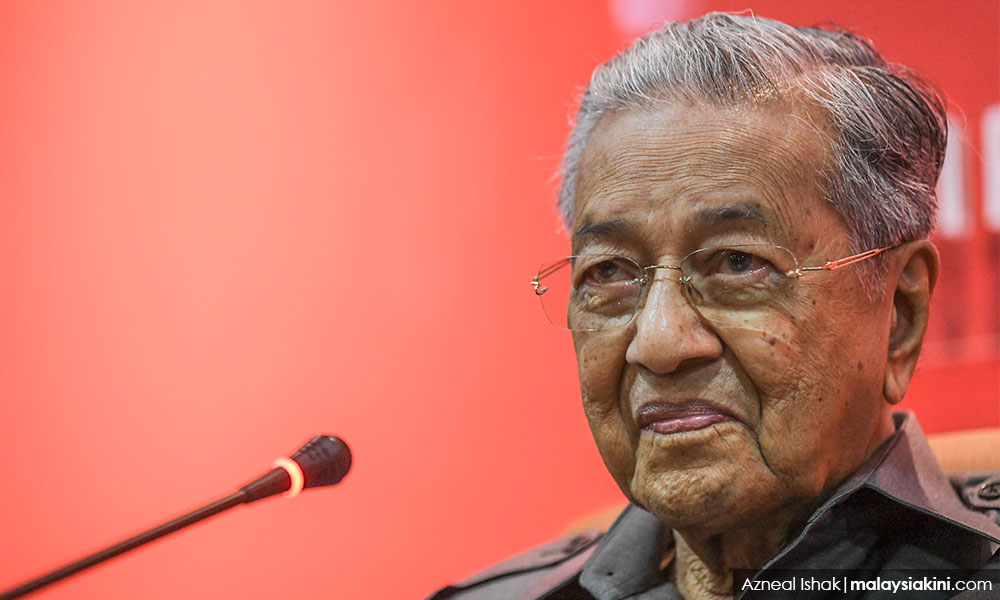
Trust: Mahathir’s de facto authority ended upon his resignation as the seventh prime minister. Although the Yang di-Pertuan Agong implored him not to do so, he refused to abide by the royal request.
Long before that, his legitimacy was impaired when he did not reciprocate Malaysians’ magnanimity in giving him a second chance.
Caesar did not see himself as a tyrant nor as a wolf but was feared he would become one because he eyed Romans like sheep. Mahathir, like Caesar, does not see himself as a tyrant but eyed Malaysians in colonial racial stereotypes.
It was too ingrained in him to see Malays other than as “lazy natives”, Chinese as rich and greedy, while Indians as well as Sabah and Sarawak natives were not in his sight.
The reversal of the International Convention on the Elimination of All Forms of Racial Discrimination (Icerd) ratification, withdrawal from the Rome Statute of the International Criminal Court, his reneging on the implementation of the Harapan manifesto and promised reforms, the playing up of racial fears to pull Malay support from Umno to Bersatu, and the detention under SOSMA of those accused of being LTTE Tigers affected his legitimacy.
The five consecutive by-election losses culminating in the humiliating defeat in Tanjung Piai are evidence that Harapan under Mahathir’s leadership had lost substantial support. His reservoir of support had dried up long before he resigned.
Fairness: Reports now revealed Mahathir played a part in precipitating the Sheraton Move although he did not agree to pull Bersatu out of Harapan or to accept Umno and PAS as partners. He only wanted their MPs with the exceptions of a selected few.
Former deputy prime minister Wan Azizah Wan Ismail honoured the power transition agreement in declining the position when the King offered the PM’s post to her as Harapan’s leader. Mahathir, by resigning as the seventh PM but in seeking to be re-appointed as the ninth, is not living up to his end of the bargain.
Values: Mahathir in his second sojourn as PM was like an expert oarsman. While he faced forward, he was rowing the Malaysian boat backward.
The problems today are no longer those in 1971. It is not inter-ethnic inequality but intra-ethnic inequality, especially amongst the Malays.
One is always ready to accept almost any explanation except one – that the present state of corruption and kleptocracy may be the result of a genuine error on one’s own part and that the pursuit of some of our most cherished ideals has apparently produced results utterly different from those one expected.
The corruption and theft faced by the country are not due solely to the personal weaknesses of the individual. It is a product of the system when meritocracy, capability, and performance are jettisoned in favour of unfettered discretionary powers to award contracts and jobs by one person unaccountable to no other.
It is an awesome power to make one person a billionaire overnight and condemn another to a life of servitude. In such a system it is only natural that only the worse will get to the top.
Mahathir did not dismantle this system as promised. You cannot have shared prosperity without a shared society.
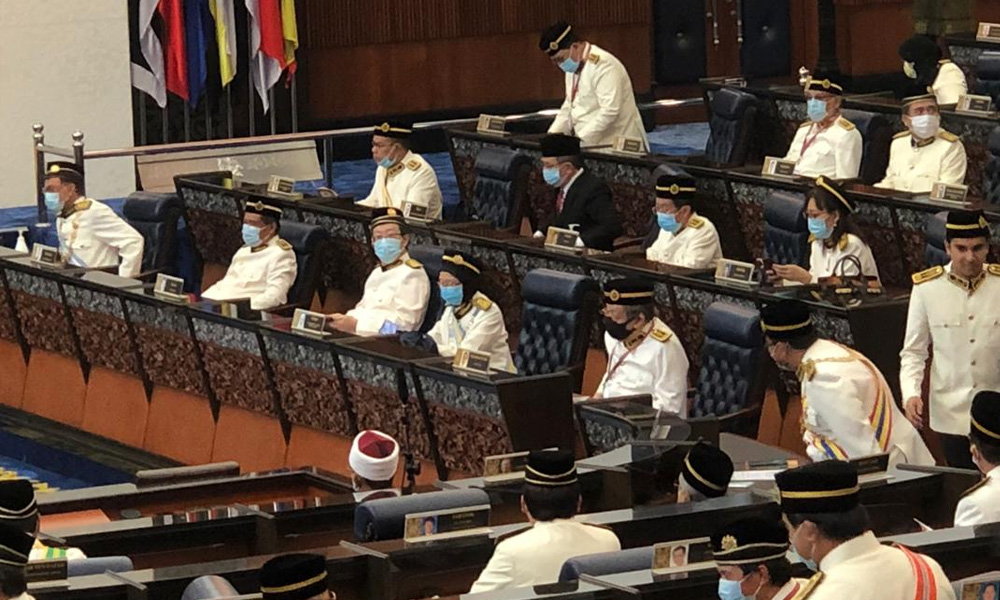
Democracy: Mahathir, when he believed he had the support of all 222 MPs across the divide to be the eighth PM, revealed he planned to form a government without political parties.
Political parties are essential institutions of democracy. By competing in elections, parties offer citizens a choice of governance, and while in opposition they can hold the government accountable. Only dictatorships like North Korea have governments without political parties.
The Harapan leadership endorsed Mahathir as PM in the second round before the King, following the Sheraton Move. This was made in the heat of the moment.
The Harapan leadership needs to reflect deeper in giving Mahathir their endorsement yet another time.
The people’s mandate for reform has been thwarted in the past two-and-a-half years. There are now calls for PKR president Anwar Ibrahim to be a statesman like Nelson Mandela by endorsing Mahathir another time.
While Nelson Mandela was always open to reconciliation and inclusive co-existence, he was uncompromising in his fight for rights and equality in his 27 years in jail. Anwar Ibrahim has also remained steadfast in his fight for reforms after 10 years in jail.
Anwar is a man more sinned against than sinning. Mahathir said he did not proceed with the transition of power because Anwar is too liberal. Anwar formed a multiracial party instead of a Malay race-based party.
We all know Mahathir, like Julius Caesar who said he was constant as the northern star, is firm and resolute in his views. How then can Anwar and Harapan further the cause for reforms by compromising them?
If Anwar and Harapan endorse Mahathir as the ninth prime minister, they will lose their legitimacy. There are those who love Mahathir, but we all love Malaysia more.
WILLIAM LEONG JEE KEEN is the Member of Parliament for Selayang.
MKINI



Aiyoo willie nillie pandei le kamu
ReplyDelete